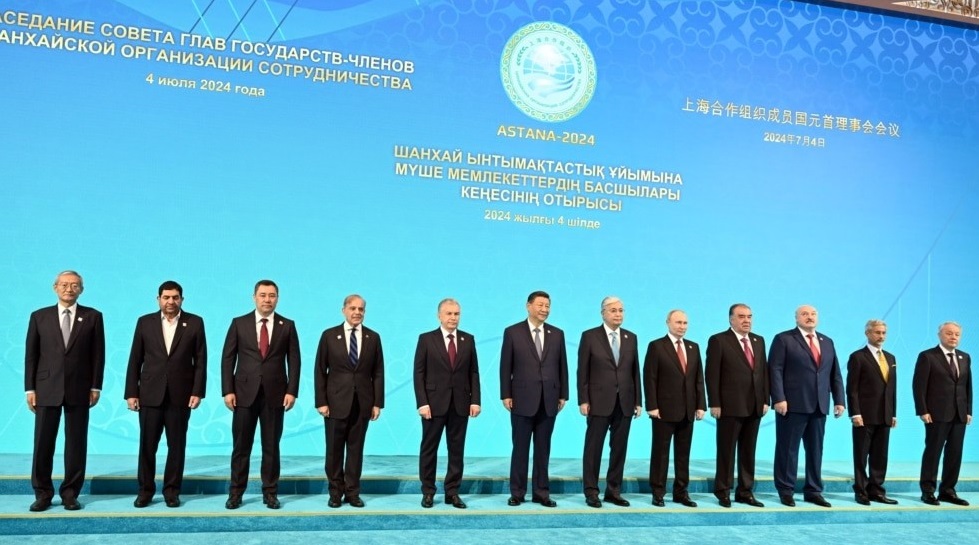CSO: the big Eurasia parade in Astana
At the Shanghai Cooperation Organisation summit dozens of cooperation agreements were signed in the fields of energy, trade and defence at the external borders. But - beyond the proclamations on the rejection of the dollar - China, India, Pakistan and the Central Asian countries remain well integrated in the world economy, taking care not to be dragged into the abyss of sanctions against Russia.
Astana (AsiaNews) - The summit of the Shanghai Cooperation Organisation (SCO) ended in Astana in triumphant tones, especially on the part of Russian President Vladimir Putin, who proclaimed "the birth of a new multipolar world and no longer just a regional one" after having succeeded in having Belarus included in the organisation. The topics discussed were precisely the realisation of this vision, proposing a new global security system and a shift to national currencies in financial transactions, freeing themselves from the 'tyranny of the dollar and the euro'.
Dozens of cooperation agreements were signed in the fields of energy, trade and defence at the external borders of the member states, which will determine the future development of the CSO.
The most important point was precisely the rejection of the dollar, which mainly concerns the complex relations that have been created in these two years of war, with the sanctions against Russia and the ambiguous role of the allied or 'neutral' states towards Moscow.
Apart from Russia, Iran and Belarus, the other CIS countries (China, India, Pakistan, Kazakhstan, Uzbekistan, Kyrgyzstan and Tajikistan) are in fact still integrated into the world economy, and are very careful not to be dragged into the sanctions abyss themselves.
The problem of national currencies is also rather difficult to solve, given the great instability of the rouble these days. Some countries like Uzbekistan have such high exchange rates that huge sacks of banknotes are needed to make cash payments, and the dollar and the euro have remained the currencies of choice for the past two years.
Another cardinal direction of the CSO is the fight against terrorism and extremism, which was reiterated as a priority during the summit. The topic has become even more sensitive after the latest wave of attacks and plots, which have affected both Russia and various parts of Central Asia, and so far there has been no real coordination in the fight between the countries concerned, beyond words of support and condolences. As several experts observe, the proclamations to this effect by the CSO are more a way of 'flexing one's muscles' in front of the whole world.
The balance of trade between these countries is also rather fluctuating, and the entry of Belarus has not added any significant value. Rather than a common market, in the economic sphere the bilateral relations between the various members of the SCO are mainly of value, and the Astana summit itself was an opportunity to make direct agreements, rather than global perspectives.
The competition between India and China, for example, remains firmly in the background, and it is no coincidence that Indian Prime Minister Narendra Modi did not show up in Kazakhstan, while the Pakistani delegation gave more importance to the meeting with the President of Tajikistan, Emomali Rakhmon.
According to Currentime expert Galja Ibragimova, the SCO as a whole 'has more diplomatic than practical significance', as 'originally the organisation was created for the resolution of territorial issues, which to this day remain largely unresolved'.
Now the CSO no longer even deals with this issue, but 'thinks about celebrating the parades of leaders, especially from China and Russia, and exalting a few sporadic new members, in order to affirm in front of everyone that it is on the side of the good, against all the evil in the rest of the world'.
07/02/2019 17:28
11/08/2017 20:05







.png)










